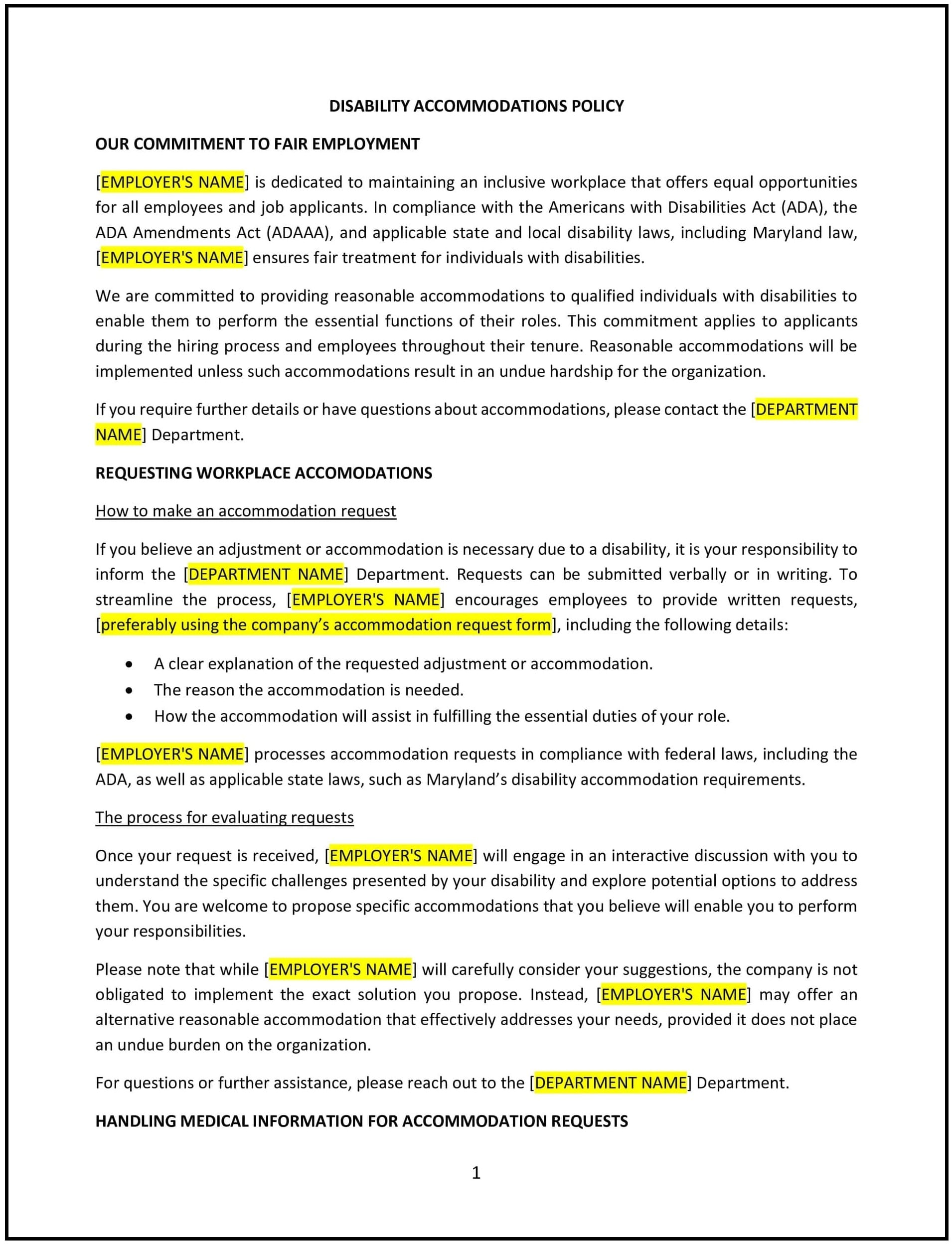Disability accommodations policy (Maryland): Free template
Got contracts to review? While you're here for policies, let Cobrief make contract review effortless—start your free review now.

Customize this template for free
Disability accommodations policy (Maryland)
This disability accommodations policy is designed to help Maryland businesses support employees with disabilities by providing reasonable accommodations in compliance with the Americans with Disabilities Act (ADA) and Maryland disability laws. It establishes guidelines for requesting, reviewing, and implementing accommodations to foster an inclusive workplace.
By adopting this policy, Maryland businesses can promote equal opportunities, enhance employee well-being, and create a supportive work environment.
How to use this disability accommodations policy (Maryland)
- Define reasonable accommodations: Clearly outline examples of accommodations, such as modified work schedules, assistive devices, or accessible workspaces.
- Establish a request process: Provide a step-by-step process for employees to request accommodations, including forms and points of contact.
- Review and assess requests: Detail the procedure for evaluating requests, including engaging in an interactive process with the employee.
- Document decisions: Maintain records of accommodation requests, decisions, and implemented adjustments for accountability and future reference.
- Communicate confidentiality: Emphasize that all disability-related information and discussions will remain confidential.
- Train managers: Ensure supervisors understand their responsibilities under the policy and how to handle accommodation requests appropriately.
- Reflect Maryland-specific considerations: Address state laws, such as the Maryland Human Relations Act, which may provide additional protections for employees with disabilities.
Benefits of using this disability accommodations policy (Maryland)
Implementing this policy provides Maryland businesses with several advantages:
- Promotes inclusivity: Creates a workplace environment that supports employees with diverse needs.
- Encourages retention: Helps retain talent by addressing accessibility needs and fostering a supportive culture.
- Reduces legal risk: Aligns workplace practices with Maryland and federal disability laws.
- Enhances productivity: Provides employees with the tools and adjustments they need to perform effectively.
- Builds trust: Demonstrates the business’s commitment to fairness and equal opportunity.
Tips for using this disability accommodations policy (Maryland)
- Communicate openly: Inform employees about the policy during onboarding and in employee handbooks.
- Provide resources: Make accommodation request forms and guidance readily available.
- Engage collaboratively: Work closely with employees to identify accommodations that meet their needs and align with business operations.
- Review regularly: Periodically assess accommodations to ensure they remain effective and relevant.
- Stay updated: Reflect changes in Maryland disability laws or workplace standards in the policy.